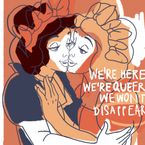Genetically modified fish and mosquitoes and dangerous flies
Zebra fish – a freshwater fish of the carp family – is used to develop new drugs and to study physiological processes that also occur in the human body in a similar manner. Researchers from the Institute of Pharmaceutical Biology at the University of Bonn have replaced one of the fish genes with a human gene (GPR17) – its over-activation can lead to, among other problems, multiple sclerosis. Tests showed that the molecule that inhibits the human GPR17 receptor in the test tube did the same in the modified fish, stimulating the formation of mature oligodendrocytes.
By genetically modifying mosquitoes, scientists at Imperial College London have slowed the growth of malaria-causing parasites in the insects’ guts. The parasites are much less likely to reach the salivary glands of mosquitoes and, after biting, do not transmit to humans. Laboratory trials have been successful, and if the technique proves safe and effective , it will become a powerful weapon against malaria. This is another success for British scientists after developing a vaccine for the disease, which threatens half the world’s population.
Findings from a study conducted at the University of Massachusetts Amherst in the US suggest that houseflies are vectors for disease-causing pathogens that they transmit to humans through their vomit. As they move from food to food, they excrete excess water containing pathogens from the body, leaving it on the food. Female non-biting (synanthropic) flies are particularly dangerous.


























